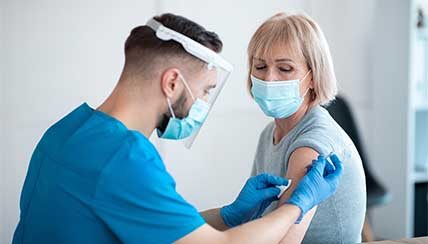![]() FOR HISTORICAL PURPOSES ONLY
FOR HISTORICAL PURPOSES ONLY
Information on this page is displayed for historical purposes only and is no longer being updated. As such, it may be out of date with recent developments or scientific research. CDC.gov and your state’s health department may offer additional guidance.
COVID-19 (Coronavirus) Who Should Get Tested?
Learn about COVID-19 testing from Infectious Disease expert at National Jewish Health, Shannon Kasperbauer, MD.
Video Transcript
If someone had symptoms of a lower respiratory tract infection, including a significant cough, shortness of breath and fever, that would definitely be a trigger to go in and see your local provider right away, and then they will make the decision. Do you fall into that category of someone that should be tested or do we have other explanations for those symptoms? Because, again, right now there are so many other pathogens in the community that can cause those same kind of symptoms than this particular virus.
So there's a really specific criteria that the CDC has released to us to work up what we consider a suspect, and the first is that someone needs to have symptoms. So they need to have a fever and lower respiratory tract symptoms like a cough or shortness of breath. But beyond the symptoms, they also need to have a significant exposure risk. So that exposure right now is travel and exposure to people where there's high communities spread like China, like South Korea, Japan, Iran and Italy.
The second important person to consider who should need testing would be someone that has symptoms and has a contact with a confirmed case of coronavirus. Now, there's a third category of patients that the CDC has recommended testing, and that is a patient that has a severe acute respiratory syndrome. This is a hospitalized patient that has pneumonia and we have ruled out other causes of that pneumonia.
The information on our website is medically reviewed and accurate at the time of publication. Due to the changing nature of the COVID-19 pandemic, information may have since changed. CDC.gov and your state’s health department may offer additional guidance. |


